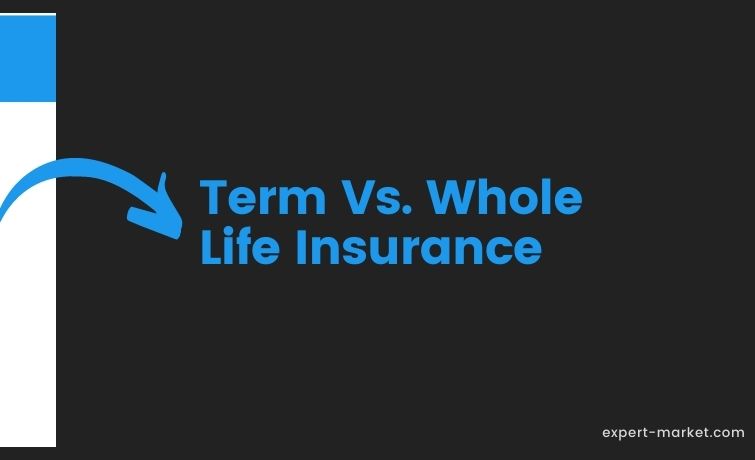There are so many different kinds of insurance plans, from insuring your home to your pets to even your mobile phone. This can make it quite challenging to determine what you actually need insurance for as well as making it tricky to find the best policy available.
Its no wonder that with all of these options, many people end up forgetting to insure the one thing that means the most to them – their life.
If you want to protect your family from financial difficulties after death and ensure that all of their needs are covered when you can no longer provide for them, then you need to consider term and whole life insurance policies carefully to see which is best.

Compare Term and Whole Life Insurance
To find the right type of life insurance for your needs and budget, you first need to understand your options.
The two main options when it comes to life insurance are term policies and whole life insurance. Both of these plans come with various advantages and disadvantages based on what you need and how much you can afford.
- Term Insurance
Term Life insurance is a form of temporary life insurance that offers lower premiums due to the fact it only covers a specific length of time. It is considered to be the most basic, pure form of life insurance available as it does offer death benefit protection but without any cash value or investment build-up.
- Whole Life Insurance
Whole Life insurance is a longer-term policy that can provide both death benefit protection and cash value build-up. This is a form of insurance that you will pay into for a long period, which is why the benefits can be higher than those offered with term insurance.
If you take out this kind of insurance, both the coverage and the premium are typically locked in, which means they cannot be changed regardless of your increasing age or any health issues that may arise.
Who Is Term Insurance Best Suited To?
Term insurance is a form of temporary life coverage, which makes it suitable for those who are looking for a flexible plan that they can pay into for a set length of time.
Depending on the kind of term insurance you take out, the ‘term’ – which is the length of time that the insurance will work for – can be anything between one year to thirty years. This makes it a very flexible option and one that offers policyholders a lot of control.
This form of life insurance tends to be more affordable than whole life, due to the fact it is only considered to be temporary. This is especially the case for those who are young with little to no health issues who choose to take on a term life insurance policy.
It is important to note that the death benefit and the cost of insurance premium will typically remain the same or level throughout your entire term. The death benefit of term life insurance will be paid out after death, and the income can be received tax-free.
Who Is Whole Life Insurance Best Suited To?
Whole Life insurance is a more extended policy as it is intended to provide insurance across your entire life, or as long as you have been paying into the policy.
In this kind of insurance plan, the funds that you pay in can grow at a rate of return that is set by the insurance company. This is why when it comes to finding the best life insurance, you need to make sure you compare various companies to see who offers the best deals.
The funds that you pay into a whole life insurance policy will grow and compound on a tax-deferred basis, which means that there is no tax gain due to the death benefit until the money is withdrawn.
This is a long-term plan that is suitable for those with a lot of amenities who want to protect themselves and their family from issues that can arise after death. While it is more expensive than term insurance, it can offer more coverage, which is required by these kinds of policyholders.































